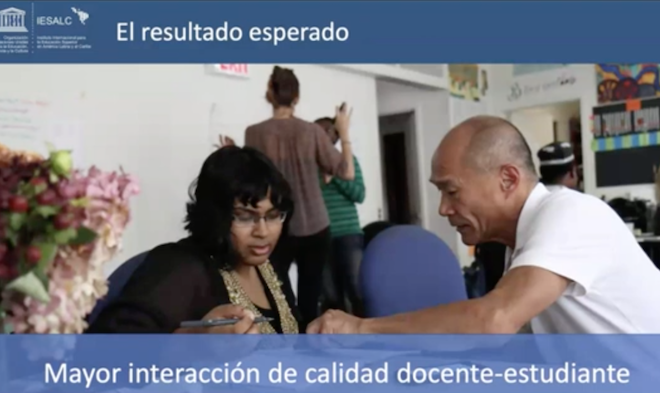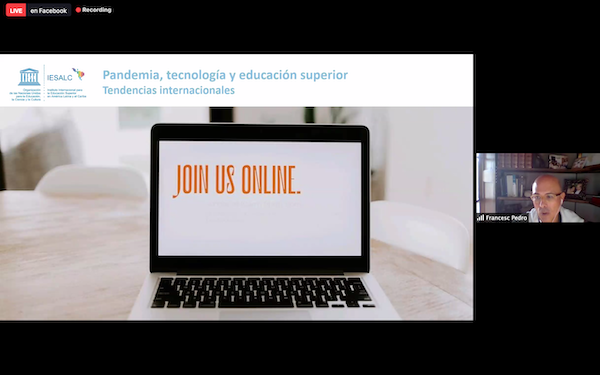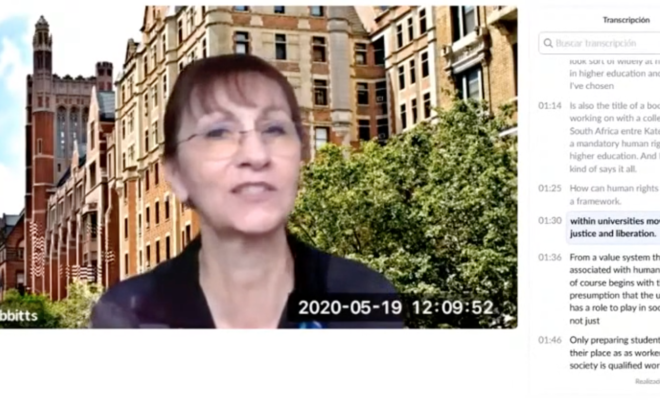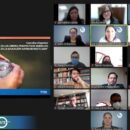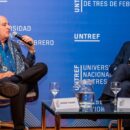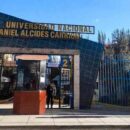IESALC supports the 2020 II Forum on Quality Assurance in Higher Education
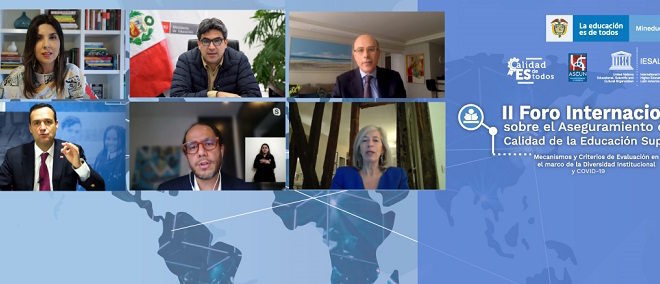
On May 27th, 2020 the first session of the 2020 II Forum on Quality Assurance in Higher Education took place. It was organized by the Ministry of Education of Colombia (MEC) with the support of the UNESCO International Institute of Higher Education for Latin America and the Caribbean IESALC, and consisted of a virtual session attended by 2000 people including researchers, teachers, quality leaders, rectors of higher education institutions and executives of government entities in Colombia and other Latin American countries.
Ministers of Education of the continent shared “experiences on home learning processes supported by information technologies, carried out by higher education institutions during the suspension of face-to-face classes due to the pandemic”, indicated the MEC website.
They also learned about the experiences and international processes surrounding the implementation of public policies aimed at strengthening higher education in the midst of the emergency generated by COVID-19.
The installation of this first virtual session of the II International Forum on Quality Assurance in Higher Education was carried out by the head of the portfolio in that country, María Victoria Angulo. Participating as guests were Stefania Giannini, UNESCO Deputy Director-General for Education; Carlos Martín Benavides, Minister of Education of Peru; Juan Eduardo Vargas, Under-Secretary for Higher Education, Ministry of Education of Chile; Jaime Perczyck, Secretary of University Policies at the Ministry of Education of Argentina and Francesc Pedró, Director of the IESALC.
Minister Angulo highlighted the work of higher education actors in her country to ensure the continuity of training processes during the validity of social isolation measures. She also emphasized on the implementation of the Plan Padrino (Godfather Plan), a strategic initiative for research, collaboration, participation and exchange of experiences and practices related to educational innovation and digital transformation processes involving 126 institutions.
For her part, Stefania Giannini, invited the participants to add actions for the strengthening of Higher Education in the continent. “At this time, it is crucial to join efforts to face the challenges of Education on the continent. For this reason it is necessary to forge global alliances with international organizations and private companies that contribute to ensure that inclusion and equity are at the heart of the responses that the States design in this situation.” She also made emphasis on the fact that 1.2 billion students in the world are being directly affected by the threat or the definitive closure of their educational institutions.
The change in education has arrived and cannot be evaded, but it has to be assumed with the necessary adjustments and actions so that the inequalities that come to light can be addressed and responded to effectively, and to achieve this the only answer to the crisis lies in global cooperation, assured Giannini.
She emphasized UNESCO’s mission, focused since the start of the pandemic on raising awareness on the impact that closing schools and universities has, advocating for the right to education, and emphasizing the need to develop strategies to meet the demands of students most vulnerable to the pandemic. “Inclusion, equity and alliances are at the heart of this response,” she said.
Francesc Pedró, director of UNESCO IESALC, recognized the efforts made in the region to strengthen the links between students and institutions in the midst of social isolation, and emphasized the importance that the support generated by governments be directed to the most vulnerable students with the object of preventing abandonment and desertion.
For Pedró, it is necessary for the region to advance in the development of policies aimed at improving pedagogical experiences in educational processes assisted by ICTs in order to ensure the right to quality education.
During his speech, he presented the support and transformation strategy that the IESALC proposes in the framework of the reopening of educational institutions, which forms part of its most recent report entitled COVID-19 and higher education: From the immediate effects to the day after. Impact analysis, policy responses and recommendations.
The invitation is for next Wednesday, June 3, starting at 8:00 a.m. Colombia time, when the 2020 II International Forum on Quality Assurance in Higher Education will activate the second session of the virtual dialogue to explore and reflect on the International Perspectives of Quality Assurance in Higher Education. This will be repeated consecutively every Wednesday until June 17.
Photo courtesy of MEC website.
RELATED ITEMS
